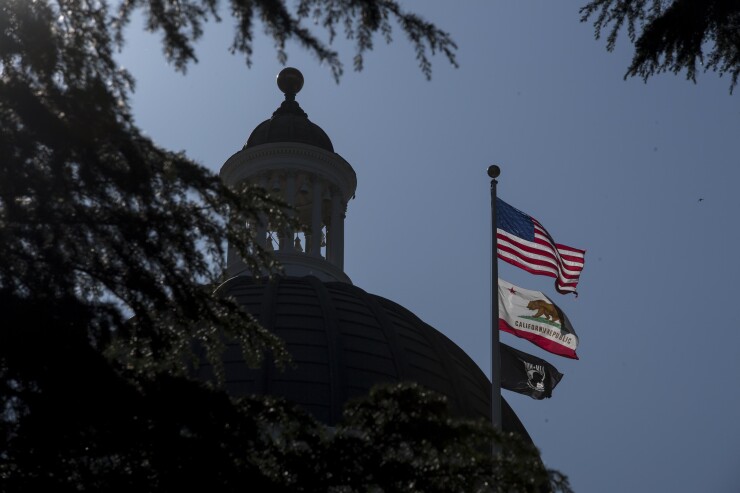In California, a consumer privacy initiative that banks oppose has qualified for the November ballot, though a deal may be in the works to head off a statewide vote.
The Secretary of State’s office said Monday that backers of
Under California rules, a statewide proposition can be averted if the legislature passes a law backed by the group that authored the pending measure. Last week, Californians for Consumer Privacy announced that it is supporting a consumer privacy bill recently introduced by Democratic members of the state Assembly and Senate. The California Senate's judiciary committee approved that compromise proposal in a 5-0 vote on Tuesday.

“California now has two opportunities to empower consumers to take back control of our personal information: one sits before the California Legislature, and the other can now appear on the ballot,” Alastair Mactaggart, chairman of Californians for Consumer Privacy, said in a press release Tuesday.
The ballot measure, which is the first of its kind nationally, would allow the state’s 39 million residents to tell specific firms not to sell their personal information. It would also enable Californians to sue under certain circumstances — if a company failed to implement reasonable security procedures and later suffered a data breach, for example — and to collect $1,000 per violation.
In addition, the ballot initiative would give consumers the right to know when a business sells or discloses their information for a business purpose.
The initiative includes an exemption for banks and other businesses that collect less than $50 million in annual revenue and meet certain other standards. But nearly all banks with more than $1 billion in assets surpassed $50 million of revenue last year, according to a review of Federal Deposit Insurance Corp. data.
Numerous tech companies, telecommunications firms, banks and credit unions oppose the ballot measure. They argue that compliance would impose a large burden.
Californians for Consumer Privacy has said that the compromise bill under consideration in Sacramento is broadly similar to the ballot measure. Still, changes contained in the proposal that is currently under consideration by the legislature could help assuage at least some of the concerns of bankers.
The legislation states that it will not apply to personal information collected, sold or disclosed pursuant to the Gramm-Leach-Bliley Act if the provisions of the two laws are in conflict. Gramm-Leach-Bliley is a 1999 federal law that established privacy rules for banks.
A spokesman for the Committee to Protect California Jobs, which is opposing the ballot measure, said in an email Tuesday that negotiations on the legislation are still under way. He added that Thursday is the deadline to pass a compromise measure, which would lead to the cancellation of the November vote.





